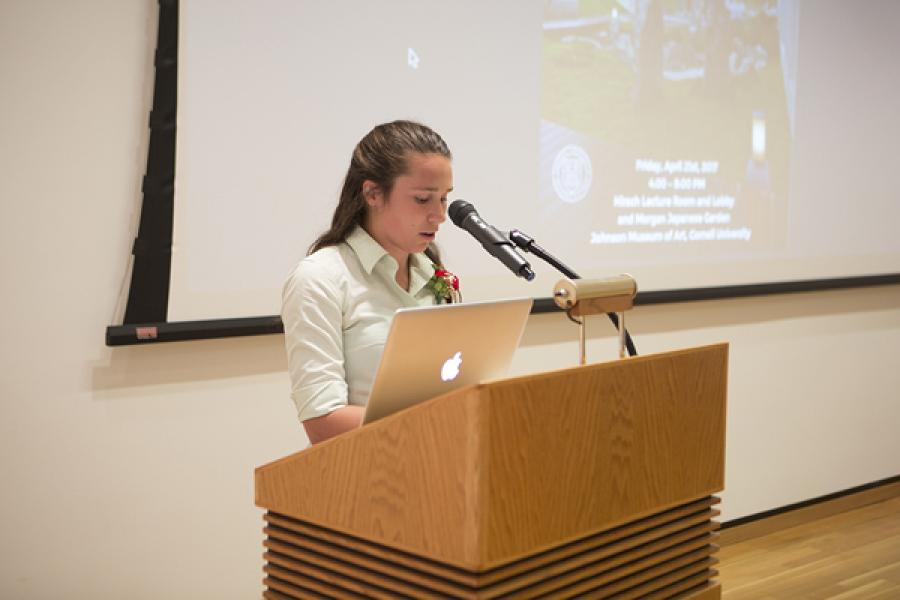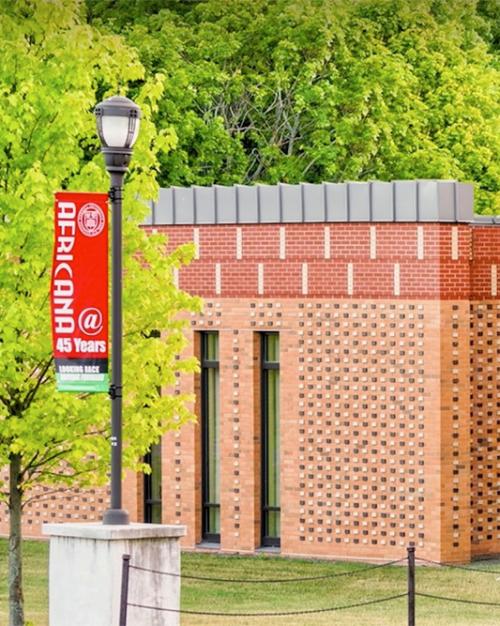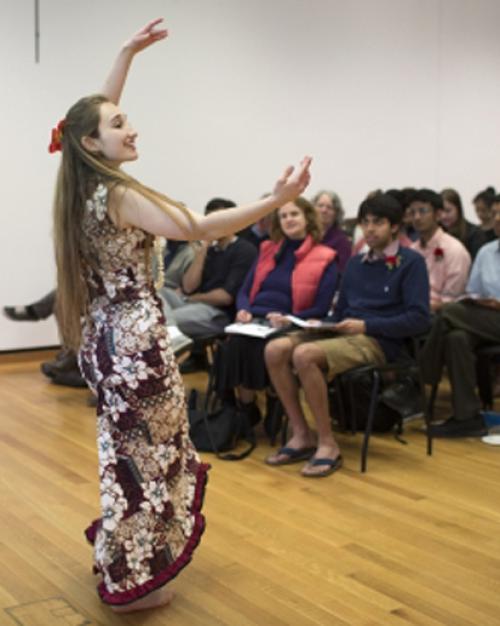A celebration of National Poetry Month and language learning on April 21 at the Herbert F. Johnson Museum of Art featured multilingual poetry, song, dance and an international dessert reception. The goal, said Dick Feldman, director of the Language Resource Center (LRC), was “to experience the beauty of poetry in many languages and to celebrate success in learning those languages.”
According to Lisa Sansoucy, event organizer and LRC course coordinator, 34 students read poetry in 27 languages during the four-hour event. Undergraduates came from the colleges of Arts & Sciences, Agriculture and Life Sciences, Human Ecology, Engineering and the ILR School; graduate student readers came from the humanities and natural and social sciences fields.
The event began with languages taught through the Shared Course Initiative, Cornell’s collaboration with Yale and Columbia universities to share instruction in less commonly taught languages; the second part was open to all languages. Sandeep Singh Chauhan, poet and lecturer of Punjabi at Columbia, attended the event, at which two of his Cornell students read his poems. Dee Davis, interpreter for the deaf and instructor at SUNY Broome Community College, presented two poems in American Sign Language.
“Understanding each other across cultural barriers … is deepened through literature and poetry, especially when we experience the voices of poetry in many languages,” said Feldman. “We feel the power of local, personal expression, of voices with long indigenous traditions. Cultures may seem to separate us, but every poem reminds us to lay down our arms and our translators, and listen to each other.”
Sansoucy said she was “extremely happy that the Language Resource Center could provide the opportunity for our students to express themselves in the languages that they are studying and in their native and heritage languages.”
Oyindamola Adisa ’17 read a love song in Yoruba, a West African language taught at Cornell by Adeolu Ademoyo, senior lecturer in the Africana Studies and Research Center. “As an international student from Nigeria, I’ve studied Yoruba all my life. But if you don’t have someone to speak it with you lose it,” said Adisa, who has taken a Foreign Languages Across the Curriculum class in Yoruba.
Feldman noted some languages like Yoruba and Sinhala are rarely taught in the U.S., but there are 20 million and 16 million speakers of those languages, respectively.
Lingzi Zhuang, graduate student in the field of linguistics, began studying Tibetan at Columbia as an undergraduate. When he came to Cornell for doctoral studies in linguistics, he continued studying with the same teachers through the Shared Course Initiative. He read an excerpt from the “Epic of King Gesar,” which he noted is equivalent to “The Odyssey” in the Western tradition. Lingzi read in two variants of Tibetan, Amdo (atonal) and Lhasa (tonal) and included his own original English and Chinese translations of the poems.
Audience members were enthusiastic about the opportunity to hear such a diversity of literary traditions. As Francesco Burroni, a graduate student in the field of linguistics commented: “You never get the chance to hear Bengali poetry; I never had a chance to think about what African poetry is about. It gives different perspectives on the world.”
Doctoral students Gargi Wable and Shilpa Sahoo performed classical Indian Mujra dance, and students in the Society for the Promotion of Indian Classical Music and Culture Amongst Youth performed a Carnatic song and Bharathanatyam dance.
ILR student Sofia Lokelani Boucher ’19 performed a chant, hula dance and poem in Hawaiian in honor of Earth Day. “The poem is written in the context of Hawaii but applies to all of us,” she said. “Take care of the land, take care of each other, take care of yourself.”
This story also appeared in the Cornell Chronicle.







